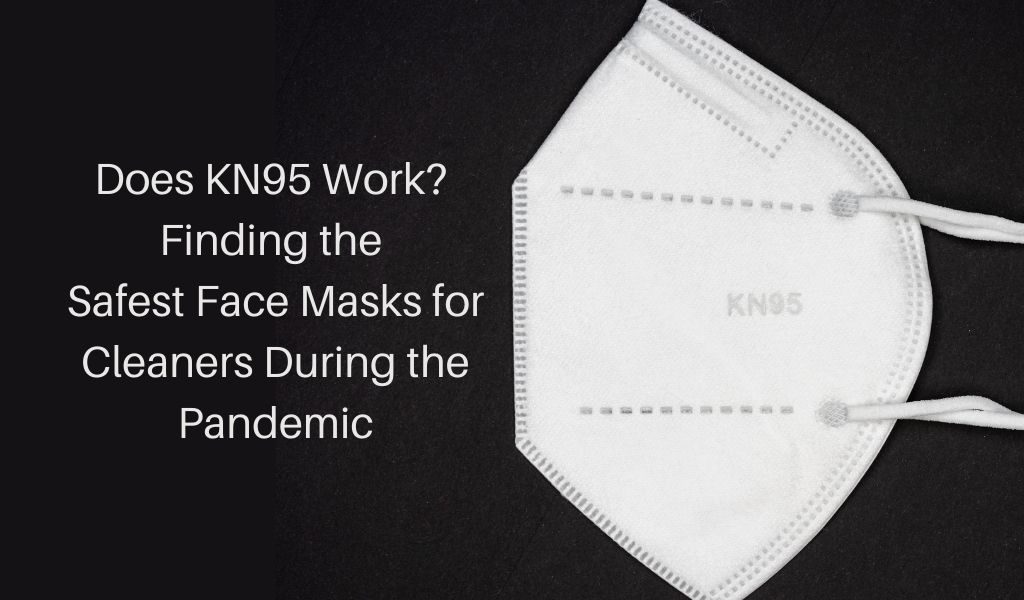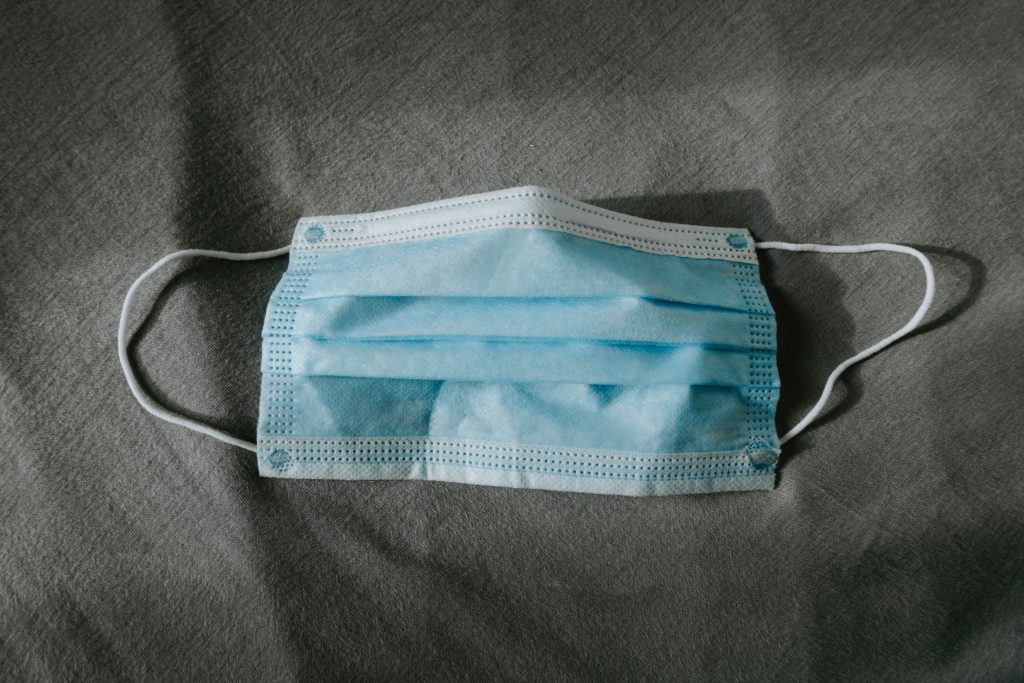Quite a few options exist for facial protection while performing janitorial services. Understanding the differences will help you to choose the safest face masks for your teams.
Before the pandemic, most cleaning professionals probably didn’t spend much time thinking about facial coverings. A box of disposable masks kept on hand likely got the job done for most. Now, with so much more at stake, cleaners want to make sure that they’re using the safest face masks on any given job, even if they’re only cleaning a non-medical office.
The trouble is, there are a lot of options out there! From N95 respirators to KN95s, surgical masks, and cloth coverings, it’s hard to know which will be the safest face masks and which ones provide the least protection.
Fortunately, we’ve got you covered. In this post, we’ll tell you all about the different kinds of masks available, which ones you should consider using, and which ones you should leave for others to use. When you’re done reading, you should have no trouble identifying the best masks for you and your employees.
Keep track of PPE inventory and so much more with Janitorial Manager. Sign up for a free consultation to learn about all of the features we offer to help you achieve your goals!
How to identify the safest face masks for your janitorial team
N95 respirators
When the pandemic first hit, N95 respirators flew off the shelves as people scrambled to provide themselves with what they believed to be the best protection against COVID-19 transmission. Before that, N95s were most commonly used in healthcare settings to protect against respiratory diseases like tuberculosis. N95s provide a very close facial fit and are rated based on things like fluid resistance and filtration efficiency. The National Institute for Occupational Safety and Health (NIOSH) regulates these masks.
While N95s likely are the safest face masks for anyone to wear, the CDC does not recommend them for use outside of the highest risk professions. One reason is that there is still a shortage of these masks, and they should be reserved for healthcare workers. Another is that N95s can make it more difficult to breathe, so those with cardiac, pulmonary, or respiratory problems may experience adverse effects from the masks. In short, N95s offer significant protection, but they are essentially overkill for those who don’t work in the healthcare industry.
KN95 respirators and other similar masks
Because of the N95 shortages, many have turned to KN95 masks and other similar types such as the FFP2 and P2. There are no significant differences between these masks and the N95 except that different governments regulate them, the KN95 most commonly coming from China. As with N95s, KN95s should be reserved for the highest-risk jobs and don’t need to be worn in most janitorial settings.
Also worth noting is the legitimacy of KN95 masks. The CDC estimates that approximately 60% of KN95 masks in the United States are counterfeit and not approved by any government agency. The potential for fake equipment is all the more reason to leave these masks alone and turn towards other protections that you can count on to be the safest face masks.
Surgical masks
Surgical masks are regulated by the FDA and protect against large droplets and splashes, though not so much for small particles. In short, they do a better job of protecting people around the wearer than they do in protecting the wearer themselves. However, if your employees are practicing social distancing, these masks should offer sufficient protection against the COVID-19 virus as long as the mask is worn properly, covering both the nose and the mouth at all times. Surgical masks are disposable and only intended for single-use, so employees should remove them, safely dispose of them in the appropriate trash receptacle, and then wash their hands before donning a new mask.
Reusable cloth masks
The most common masks used to protect against the novel coronavirus are simple cloth face masks, most of which can be reused after appropriate cleaning. Like surgical masks, cloth masks generally do not provide much air filtration. Still, they do protect against large droplets and splashes while also limiting the emission of germs from the wearer and reducing transmission of the virus as long as the mask is worn correctly, covering both the nose and the mouth at all times. The CDC suggests that cloth masks or non-medical face masks with exhalation vents should not be used, nor should masks through which you can see light when held up to the sun or other light source.
You can achieve extra protection with cloth masks by doubling up, preferably with a disposable mask underneath, or by obtaining a cloth mask with a nose wire to help create a better seal so exhaled particles can’t escape as easily.
Face shields
Finally, there are face shields, which may come with or without a mask. These offer enhanced protection against droplets, but virtually no protection at all against exhaled or inhaled particles unless you use it in conjunction with a mask. If you have workers in high-splash zones, face shields may be a good extra layer of protection, but they should never replace an actual mask.
Keep it simple
So what are the safest face masks for your teams? Unless your employees are on a job with a high likelihood of COVID-19 or other contamination, the safest face masks to use are simple cloth masks or disposable surgical masks. While they don’t offer the same air filtration as an N95 respirator, they provide enough protection, especially if your employees follow other guidelines like increasing ventilation and limiting the number of people in a room at the same time.
By using cloth masks, you’ll save N95s for the people who need them the most, primarily nurses and doctors. That way, everyone gets the protection they need on the job, and front-line workers can rest a little bit easier.
Manage client profiles, keep checklists, communicate with employees in real-time, and more with Janitorial Manager. Check out a free consultation and see for yourself how much we can offer your business!


